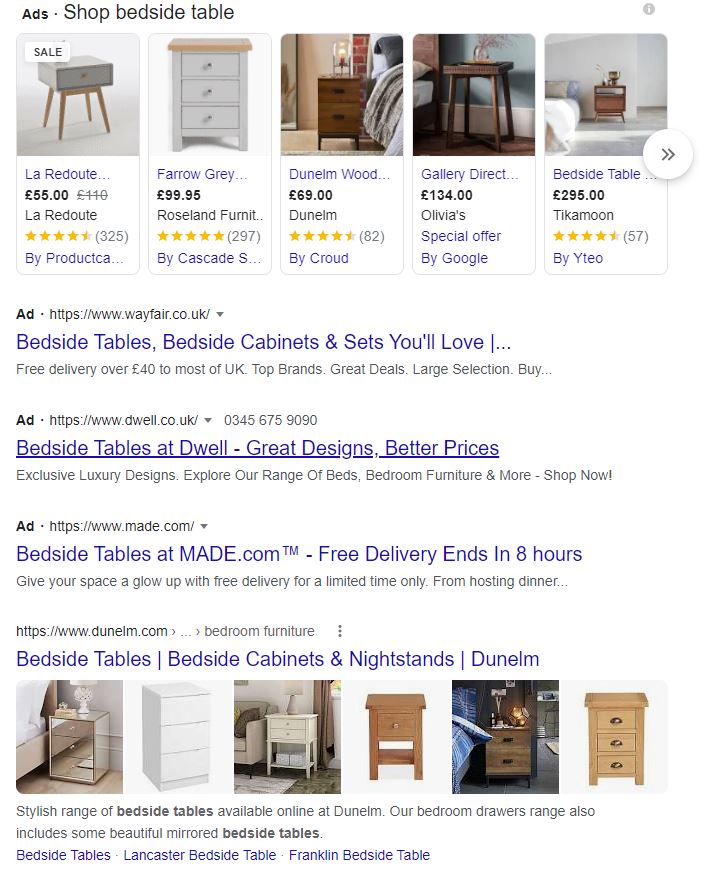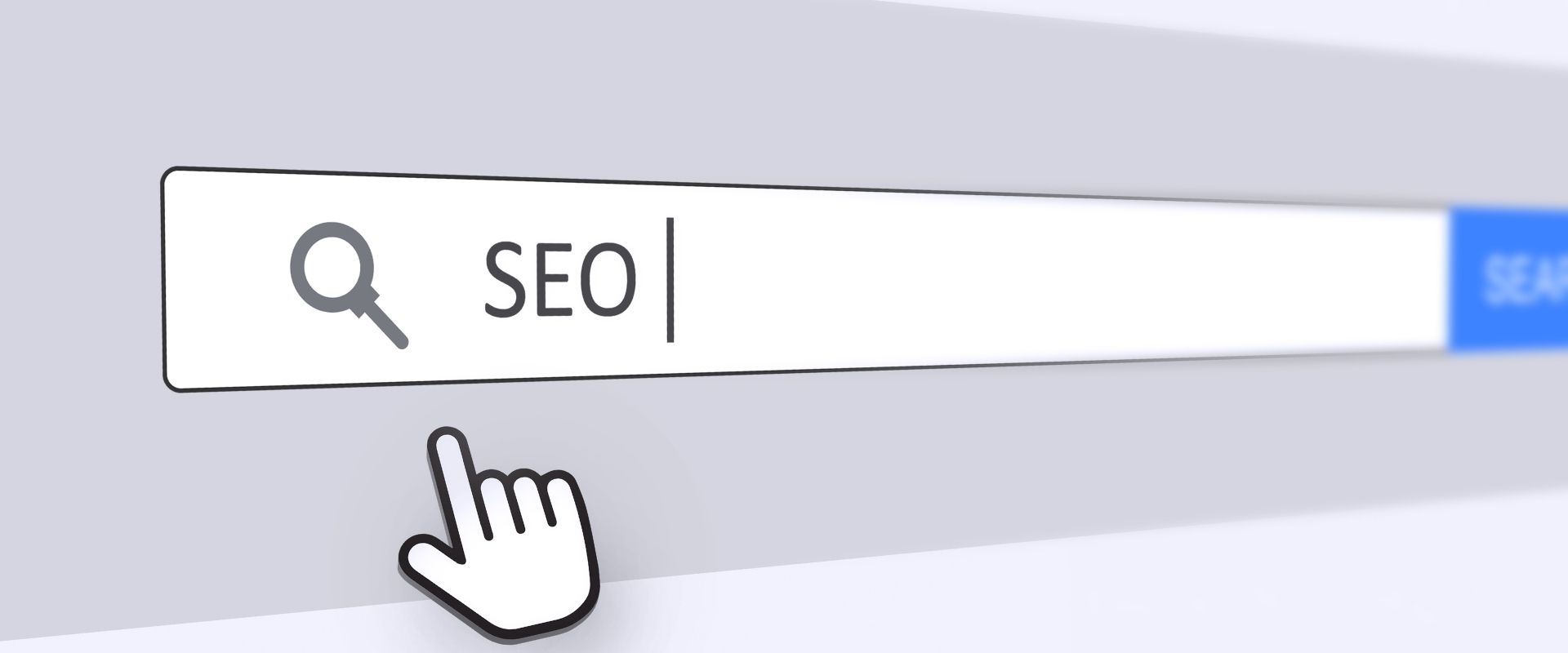Are you looking for a complete guide to SEO for dummies? Are you looking to improve your SEO and reach new customers? Not sure where to start?
You’ve come to the right place!
We at Fat Fish Marketing are Search Engine Optimization experts and want to help YOU achieve SEO success. So sit back and get ready to understand what you need to do to take your SEO from zero to hero.
What Is SEO?
SEO stands for Search Engine Optimization. While this may sound confusing at first, this is actually very easy to understand. The essence of SEO is optimizing your website for search engines. Pretty self-explanatory, right?
However, the key to SEO is understanding how search engines crawl your site. It’s all very well and good identifying that we need to optimize for search engines, but understanding how they operate is key to succeeding at SEO. After all, if you don’t know the ranking criteria, how can you hope to score well?
But what are these criteria? Well, that’s the tricky part. This is because Google is constantly shifting the goalposts, changing the algorithm used to base who comes out on top all the time. However, when it comes down to it, one governing policy can be used to guide your SEO activities – User Experience.
User Experience
If you consider Google’s objective, using user experience as your key SEO guiding principle makes complete sense. That’s because Google wants to deliver the very best experience for its customers. In other words, this means providing its users with the most relevant search results that satisfy their search intent. Therefore, always think to yourself, “if I search for a particular term, what would be the ultimate result for me?”
For example, if I search for a phrase such as “Best Laptops under £1,000,” what kind of page am I hoping to find? Probably one that has the following:
- A list of laptops from brands I know under £1,000
- Reviews and explanations of each laptop
- High-quality content and expert advice
- Images of each laptop correctly labeled
- A fast page-load speed
- Text that is easy to read (ie, black text on a white background in a legible font)
- Content written in my own language
- A video review of the chosen laptops
- An easy to navigate page broken down into appropriate headings
Funnily enough, these criteria, along with many others relating to user experience, are key factors in determining a page’s SEO score. After all, if a Google searcher consistently finds search results that don’t satisfy their search intent, then they will probably end up using another search engine like Bing or Yahoo. Google absolutely doesn’t want that.
So, what’s your reward for optimizing your webpage better than anybody else? Well, being top of the Search Engine Results Page of course!
The Search Engine Results Page
SERPs are another acronym you’ll be hearing a lot when talking about SEO. That’s because ranking highly on search engines like Google and Bing is the ultimate goal of any SEO strategy. The SERP itself is the page that loads after you enter a query into the search bar and hit enter. Below is an example for the search query “Bedside Table”.

As you are no doubt familiar with, this is a fairly typical SERP for a generic search term. What you may not know is that the images of bedside tables with prices attached to them are paid ads, paid for by several different competing companies. These ads are Google Shopping advertisements. In addition, the first two search results below that are also paid ads, as indicated by the emboldened “Ad” next to the web address at the top of each listing. Both the Google Shopping ads and the paid ads below them are known as Paid Search advertisements, or PPC (pay per click). But that’s not what we’re looking at for SEO.
What we’re really interested in are the search terms below that, these are all free organic search terms, ranked in order of relevance for the search term we entered, “Bedside Table.” As you can see, the specialist online furniture store dunelm.com ranks first for this term. It’s worth noting that when we say “organic,” we are referring to any digital marketing activity that is undertaken without directly paying for it, unlike traffic generated by Google Adwords or Facebook ads. Head to our page on PPC for more information.
But you don’t just want to rank for anything. If you sell dog treats, why would we want to rank for Bedside Tables? And now that you mention it, how does Google know that this particular page on the Dunelm website is relevant to the search term “Bedside Table?”
That leads us to the next part of our SEO for Dummies guide.
Keywords
Understanding keywords is essential to developing a great SEO strategy. You’ve no doubt come across them before if you’ve done any research into SEO, but what actually are they? Keywords or Keyword Phrases are simply the queries you put into Search Engines that generate the results in the SERPs. In our Bedside Table example, “Bedside Table” is the keyword phrase.
Why Is It Important to Consider Keywords?
Keywords are the cornerstone of SEO. Without understanding which keywords we want to target on each page, we cannot hope to optimize the page properly. This works not just purely on an SEO level, but also on a user experience level. The two, in fact, go hand in hand. Google wants to provide its users with the best possible search results it can. Therefore, it wants to list the pages that serve the user’s intent as highly as possible.
Let’s consider the Dunelm example once again. The page listed is highly appropriate for someone searching “Bedside Table” for a number of reasons:
- the name of the listing starts with the keyword phrase
- the keyword phrase is included in the URL
- once you click onto the page the title of the page is the keyword phrase
- the keyword phrase is mentioned at the very start of the opening paragraph (scroll to the bottom of the page for this one)
- the products listed on this page are all bedside tables
- there is more content below the products talking about bedside tables
- the keyword is mentioned several times throughout the page
Now that we think about it, it’s hard to imagine this page ranking for any other term!
How Can I Find Out What Keywords I’m Ranking For?
Three words. Google Search Console.
Google Search Console is a free tool provided by your favourite global mega-company. If you’re at all serious about performing good SEO, you need to set this up for your website. Google Search Console (GSC) allows you to see which pages are ranking for which search queries and in what position. This lets you tailor your page content to more effectively cater for a user’s search intent.
Say, for instance, you have a skincare website and a page that ranks for “face wash” at rank 16 in the UK. However, the page is titled “Skincare” and the phrase “face wash” only appears three of four times. What’s more, you have several products that are not face wash.
You head back to GSC and check what other terms this page ranks for. It looks like all the high ranking terms are related to face wash and not skincare. Now you know why you were only selling face wash via people who landed on this page. But what now?
What I would do is go back to the page in question and change it to better cater for the search term “face wash.” This would involve me changing the title, removing all the products that aren’t face wash, writing more content about face wash etc.
NB! In an instance like this, you should NOT change the URL! This will mean that the location of the page will have changed and Google will have to find it again, penalising your rankings. As a rule, it is wise to not change URLs if they are already ranking on Google.
Links: Why Linking Is So Important To SEO
Up until now, we’ve only mentioned on-page SEO factors that influence where you rank in the SERPs. On-page meaning the actions you take on the page we are looking to rank. However, there are important off-page factors that affect the page rank, both on your own site and on external sites. The most important of these factors are links.
How Links Help Google to Rank Relevant Pages
Consider the fact that Google has crawled through every website listed on its SERP. That’s a lot of pages. Certainly more than a human could manage to get through. That’s why Google and other search engines use bots to do this heavy lifting. But bots aren’t all that clever, they need help. Hyperlinks provide the Google Search Bot (GSB) with an indication as to what the page is they are linking to, – providing the right anchor text is used.
If I link to our amazing blog on the benefits of SEO, the GSB will now have an indication that the page is about the benefits of SEO. This should help us rank better for this term. If, however, I link to the page by saying “check out our awesome blog on the benefits of SEO by clicking here” the poor GSB is going to think the page is about the keyword term “here.” Not what we want. The actual word or phrase we link, in this case, “benefits of SEO” or “here,” is known as anchor text.
Make sure your anchor text is the target keyword you want that page to rank for!
Internal Linking
If pages on the same website link to one another, this is known as internal linking. This helps the GSB understand which pages should rank for which keywords and indicates the importance of a page across your whole website. For example, the homepage is often linked to more than any other page on your website and Google will deem this one of the most important. Product pages on e-commerce stores should also have the most links pointing to them as these are the pages that are going to be generating the most amount of money.
Blogs, on the other hand, will be linked to less frequently and usually from other blog pages rather than the important product pages. Blogs should be used to help those important pages rank better for given target keywords. Linking often and accurately is key to a good SEO strategy, especially in blogs posts! Just make sure you keep everything readable and don’t make it difficult for the reader.
External Linking and Backlinks
External linking is when a link points to a different external website. These kinds of links are also known as backlinks. Backlinks are a sort of online currency/voting system that indicate to search engines which pages are likely to have the most relevant and high-quality data.
Take the website Wikipedia, not only does this domain have millions of internal links within it, but it also has millions of links from other websites referencing its pages. This tells search engines that Wikipedia is a website that can be trusted and is why it ranks highly for an untold number of search queries.
Not All Links Are Created Equal
There are two items to touch on in this section – dofollow and nofollow links, and link authority. First up, what do we mean by link authority? Well, it’s self-explanatory really. If you receive a link from an established and trustworthy source, like say a national newspaper or the Harvard Business Review, it holds a lot more weight than a link from a spammy directory site.
You can easily find the authority score of a website by visiting Moz’s Domain Analysis tool. Here, you can enter the domain you want to analyse and the tool will provide you with an authority score from 0 to 100. It also provides you with a spam score, which is useful to know too. Low authority backlinks can still be useful to have, just bear in mind that they will not have the same effect as a high authority backlink.
So we’ve covered link authority, what about dofollow and nofollow links? Whenever a link is created, it will either be made a dofollow or a nofollow link. A dofollow link passes more of the authority from one website to another – this is known as link juice.
A nofollow link indicates to the GSB or whichever search bot is crawling the site not to transfer authority to that page. A nofollow link still benefits your SEO to a certain extent, just not as much as a dofollow. If you’re asking another website owner for a backlink, make sure you request it to be a dofollow link to get the most out of it. You can check if links are dofollow or nofollow with the handy NoFollow Chrome extension.
Are You Still an SEO Dummy?
We hope this guide to SEO for Dummies helped you to understand some of the most important elements of SEO. We’ve touched on some critical aspects of SEO which you need to understand to be successful in your SEO journey.
However, there are still many more things to learn! We haven’t even touched on important factors such as header tags, local SEO vs global SEO, local landing pages, boldened and italicized text, SEO for e-commerce and so much more! If you would like to have all of this information at your fingertips for free, simply enter your name and email address below and we’ll send you our 10-step Guide to SEO Success.




















